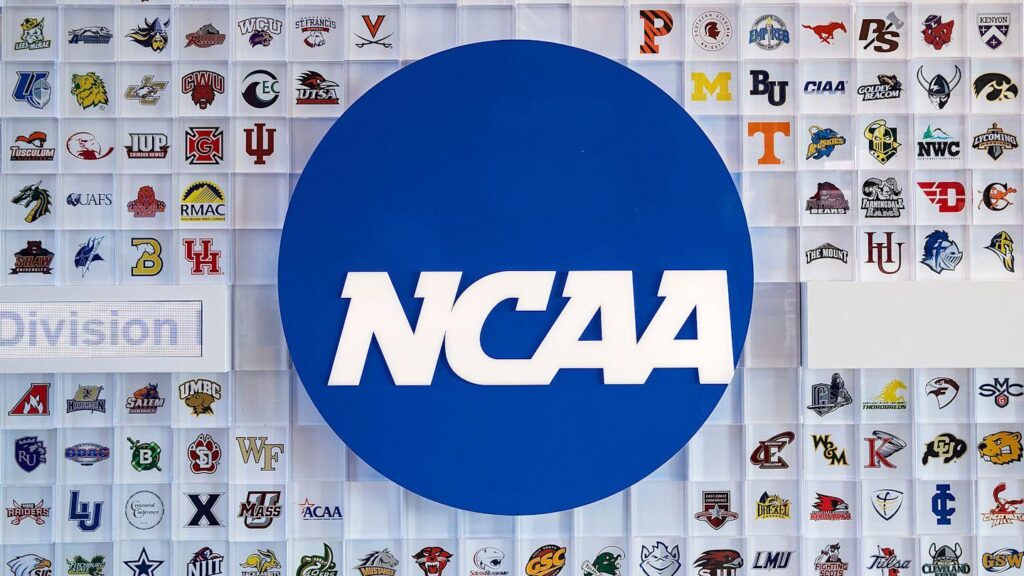The NCAA has announced a landmark policy change allowing college athletes to place bets on professional sports, marking a significant shift in the governing body’s long-standing stance on sports wagering. This decision, detailed in a report by the Las Vegas Review-Journal, comes amid the rapid expansion of legalized sports betting across the United States and aims to modernize regulations while addressing concerns about integrity and athlete welfare. The move is expected to have far-reaching implications for collegiate athletics, sports betting industries, and the athletes themselves.
NCAA Changes Betting Rules to Include College Athletes
The NCAA has announced a groundbreaking revision to its betting policies, permitting college athletes to engage in wagers on professional sports while maintaining restrictions against betting on college-level games. This shift aims to align the organization’s regulations with evolving state laws and growing calls for athlete autonomy within the sports betting landscape. According to NCAA officials, the move promotes transparency and empowers student-athletes to manage their activities in a responsible manner without jeopardizing their eligibility.
Key aspects of the new rules include:
- Explicit allowance for athletes to bet on major professional leagues, such as the NFL, NBA, and MLB.
- Prohibition remains firmly placed on wagering linked to collegiate contests, maintaining competitive integrity.
- Mandatory education programs on gambling risks and compliance will be integrated into athlete development initiatives.
| Rule Component | Previous Policy | New Policy |
|---|---|---|
| Betting on Professional Sports | Prohibited | Permitted |
| Betting on College Sports | Prohibited | Still Prohibited |
| Education Requirement | Optional | Mandatory |
Implications for Athlete Integrity and Sportsmanship
Allowing college athletes to wager on professional sports introduces a complex dynamic that could challenge the traditional notions of integrity and fair play in collegiate athletics. While the NCAA insists that these new regulations are designed with robust safeguards, critics warn that the proximity to gambling might blur ethical boundaries. Athletes might face increased pressure to engage in or be complicit with match-fixing or insider information sharing, potentially undermining trust in the competitive spirit that defines amateur sports.
Key concerns include:
- Potential conflicts of interest arising from overlapping betting and sporting responsibilities
- Heightened risks of exploitation by illegal betting rings targeting vulnerable athletes
- Challenges in monitoring and enforcing compliance with NCAA’s anti-corruption policies
| Aspect | Potential Impact |
|---|---|
| Transparency | Increased scrutiny required to maintain clear boundaries |
| Sportsmanship | Risk of compromised conduct on and off the field |
| Enforcement | Demand for advanced monitoring tools and education |
Expert Opinions on Safeguards and Regulation Enhancements
Industry experts caution that while the NCAA’s decision marks a significant shift toward athlete autonomy, it simultaneously raises complex questions about the integrity of collegiate sports. Regulators are urged to implement stringent safeguards to prevent potential conflicts of interest and protect the competitive environment. As Professor Jane Coleman, a sports ethics specialist, notes, “Without robust oversight, the risk of exploitation or insider knowledge misuse grows significantly.”
Key recommendations from legal analysts and regulatory bodies include:
- Mandatory education programs on responsible betting for athletes.
- Transparent reporting mechanisms for any wagers placed.
- Real-time monitoring systems linked to athletic departments.
- Collaboration between NCAA, sportsbooks, and law enforcement to detect irregularities promptly.
| Proposed Safeguard | Impact |
|---|---|
| Education & Certification | Increases awareness of risks |
| Betting Disclosure Policy | Enhances transparency |
| Monitoring & Reporting Tools | Detects suspicious activity |
| Inter-agency Coordination | Streamlines enforcement |
Recommendations for Education and Monitoring Programs
To ensure the integrity of both college and professional sports in light of the NCAA’s new betting policy, robust educational initiatives must be prioritized. Universities and athletic departments should implement mandatory workshops highlighting the risks of gambling addiction, ethical considerations, and legal boundaries. Student-athletes need access to resources explaining responsible betting behaviors, coupled with clear guidance on identifying warning signs of problem gambling. These programs should also involve family members and coaching staff to create a supportive environment that promotes transparency and accountability.
Monitoring protocols are equally critical to mitigate potential risks. Athletic commissions and NCAA compliance offices should collaborate to develop real-time surveillance systems that track betting patterns associated with college athletes. Below is a proposed framework for how monitoring can be structured across various stakeholders:
| Stakeholder | Monitoring Role | Tools & Methods |
|---|---|---|
| Universities | Conduct compliance checks, educate athletes | Workshops, surveys, confidential reporting channels |
| NCAA | Policy enforcement, data analysis | Betting pattern algorithms, penalties for violations |
| Athletic Commissions | Monitor professional betting activity | Collaboration with sportsbooks, regulatory audits |
Key Takeaways
As the NCAA moves to permit college athletes to engage in betting on professional sports, the landscape of collegiate athletics is poised for significant change. This unprecedented decision reflects a shift in attitudes toward athlete autonomy and the evolving relationship between sports and gambling. While the new policy opens opportunities for increased personal freedom, it also raises critical questions about integrity, oversight, and the future governance of amateur sports. Stakeholders across the industry will be closely watching how this development shapes both the culture and competitiveness of college athletics in the months and years to come.





